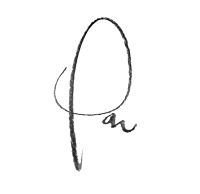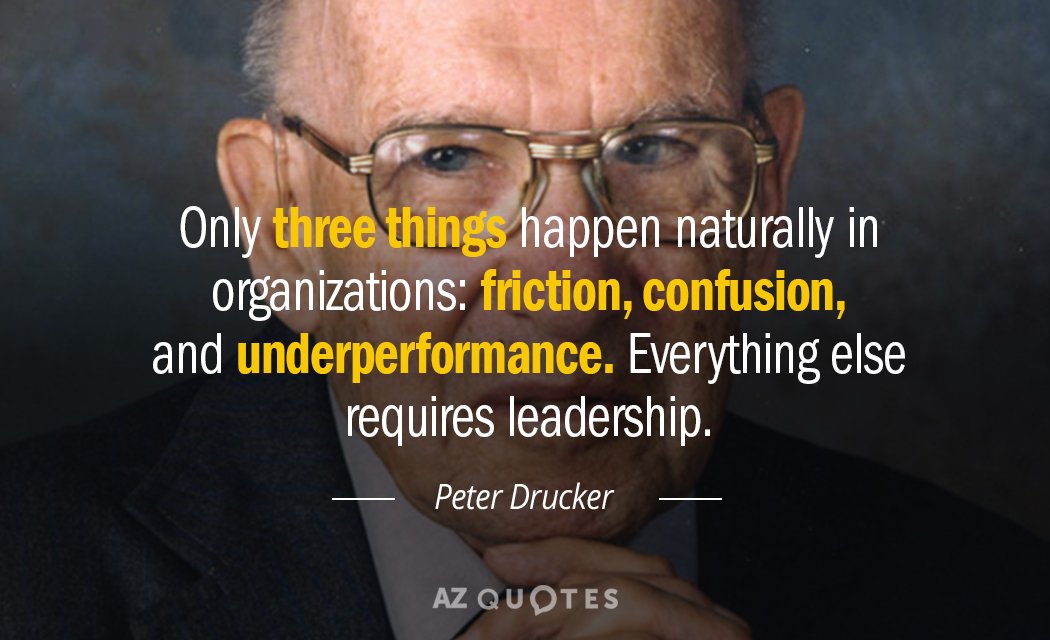Season’s Greetings to all our highly valued clients and respected colleagues:
In reference to Peter Drucker’s quote above, it probably seems obvious this can apply to personal (self) organization, families, teams, businesses, or non-profits.
There is an increasing demand for effective leadership development in all aspects of our lives today, individually, and collectively. In this month’s issue, I want to offer several suggestions and references as possible resources for such growth.
In the last few weeks, I’ve been asked a lot of questions basically saying “What can I do? I’m stressed out like crazy with all this rapid change and disruption at all levels in the world and I just don’t know what to do. Any suggestions about this?”
Leadership is a huge topic – many well-educated people have been working on this leadership development process for a long time. You can easily google this topic, to see for yourself. I have included links to articles, etc., where you can take the best and leave the rest, in terms of whatever you think might best serve you.
Like an orchestra leader pulling together and conducting various musical talents, what can we learn from such experts? What helps clarify our own purpose and determination to achieve, so it is greater than any obstacles we may encounter?
Our top priority, like window shopping for the holidays, is to clarify our own goals.
Ultimately, for whatever is our next stage of development, I recommend we all create a brief checklist (even just 2-3 key points) that we can focus on to improve.
This gives us a key repeatable checklist to be as airtight and leakproof as possible.
Paraphrased, one of my most respected mentors advises and practices 3 classics:
- Thoughtful Reflection
- Study of Wisdom Literature
- Authentic Service for Others
I think that our leadership development is “an inside job”. As within, so without.
You might say that I am writing this to take a fresh look at this critically important topic and how I can raise my own standards, possibly be a model and/or an additional resource that could help others to do the same or better for their lives.
Starting in our “house” (remember the phrase, charity begins at home?), all the way up to “The White House” and beyond, we all stand to learn/grow. What can we rationalize and emotionalize, to keep ourselves focused and moving forward?
I was once told by a Fortune 10 Company CFO that I was passionate, convicted, and conflicted. I laughed out loud in recognition of that. I am guilty, as charged.
As a student of this field, and an advocate/professional coach to support its development, I have researched multiple sources and run hundreds of workshop programs on this topic. As a mountain with no top, I am clearly still working on it.
As a visionary leader with noble purposes, you will likely experience being misconstrued, mischaracterized, and misunderstood. You will probably be challenged to be steadfast with your core vision, via employing various forms of communication and education, to keep staying on track for your ongoing progress.
Lighting the way for ourselves and others can serve as a disinfectant to chaos and confusion. Given that most leaders want to get and stay solution focused, we must keep putting ourselves back on our intended flight paths, as pilots consistently do.
For readers who want to deeper dive into a range of curated, expert resources:
(A re-cap of the audio/workbook program based upon the book
“Leaders: Strategies for Taking Charge” by Warren Bennis and Burt Nanus)
Warren Bennis is widely regarded as a pioneer of the contemporary field of Leadership Studies. Burt Nanus is a well-known expert on leadership and the author of many books on the subject, including Visionary Leadership.
These are the Fifteen Top Take-Home Lessons of Great Groups
from the book “Organizing Genius” by Warren Bennis and Patricia Biederman:
#2) The West Point Leader Development System (WPLDS)
While being interviewed at a FranklinCovey Symposium, I heard former GE CEO Jack Welch cite West Point as the world’s best leadership training program. In his book, the 8th Habit, Stephen Covey also stated that 90% of all leadership failures are character failures. Here is info about The West Point Leader Development System.
“We want leaders that are tough, resilient, that can think, and out-fight and out-smart the enemy. We want them to be adaptive and agile and flexible. And, we want them not only competent, but we want leaders of character.”
General Mark A. Milley, Chief of Staff of the Army
Introduction
The West Point Leader Development System (WPLDS) is the 47-month purposeful integration of individual leader development and leadership development experiences within a culture of character growth. The goal of the WPLDS is to accomplish USMA’s mission by developing leaders of character.
#3) How Winning Leaders Make Great Calls by Noel Tichy and Warren Bennis
“With good judgment, little else matters. Without it, nothing else matters.”
I experienced this book to be a profound wake-up call, offering critical lessons and guardrails for our leadership decision making processes, like an insurance policy.
Noel Tichy and Warren Bennis have each spent decades studying and teaching leadership and advising top CEOs such as Jack Welch and Howard Schultz. Now, in their first collaboration, they offer a powerful framework for making tough calls when the stakes are high, and the right path is far from obvious. They show how to recognize the critical moment before a judgment call, when swift and decisive action is essential, and how to execute a decision after the call. No organization can afford to neglect this crucial discipline and no previous book has ever brought it into such clear focus.
#4) The Five Practices of Exemplary Leadership® Model
Leadership is not about personality; it’s about behavior—an observable set of skills and abilities. When the co-authors of The Leadership Challenge, Jim Kouzes and Barry Posner, first set out to discover what effective leaders do when they’re at their personal best, they collected thousands of stories from ordinary people—the moments they recalled when asked to think of a peak leadership experience.
The authors discovered that when leaders experience their personal best, they display five core practices: they Model the Way, Inspire a Shared Vision, Challenge the Process, Enable Others to Act, and Encourage the Heart.
#5) What Stephen Covey taught me – The Circle of Influence – Royce Associates
As human beings, we have the capacity to be proactive. We can focus on the things that we can actually do something about, or we can add to the stress in our lives by worrying and fretting over the things we have no control over.
Stephen Covey, in The Seven Habits of Highly Effective People, introduces the concept of Circle of Concern and Circle of Influence.
The Circle of Concern is the area that we have no control over.
The Circle of Influence is the area that we have control over.
#6) Trust and Inspire Handout and Speed of Trust Handout from recent Executive Briefings with Stephen M.R. Covey (son of 7 Habits author Stephen R. Covey).
I was glad that I attended and I thought you might also appreciate seeing this info.
#7) I once received strong advice from a global leader – never be comfortable.
Like the oyster, if an oyster keeps all the sand out of his shell, he lives a life of comfort. At the end of his life, you find a dead oyster… in an empty shell.
If a grain of sand enters the oyster’s shell, he loses his life of comfort. In order to protect himself from irritation, the oyster will begin covering the sand with layers of nacre. Layer upon layer cover the grain of sand until the pearl is formed.
#8) This list is a reference to previous blogs that I have written on related topics:
Excellence is never an accident. It is always the result of high intention, sincere effort, and intelligent execution; it represents the wise choice of many alternatives – choice, not chance, determines your destiny.” – Aristotle
Without leadership, entropy kicks in. “Entropy is simply a measure of disorder and affects all aspects of our daily lives. In fact, you can think of it as nature’s tax. Left unchecked disorder increases over time. Energy disperses, and systems dissolve into chaos. The more disordered something is, the more entropic we consider it.”
This newsletter may seem to be a bit over the top with a plethora and a pantheon of resources. It was intended to be so, for those who may be seriously interested and committed to developing their leadership skills. I envision that it is at least a 2–3-Year Process to grow to another indisputable level for our long-term impact.
I may produce a more in-depth booklet about this topic in the foreseeable future.
We all get to choose what we will learn and then how we will live. In the interim…
Maybe pick one book, one course, one webinar, or one teacher to first focus on?
Maybe set new goals? What’s the next big thing for you? Before 2024? For 2024?
Whatever you’re pursuing, personally & professionally, I hope this serves you well.
If you are committed to growing your Leadership Self, we again recommend you start small with 2-3 key areas. Build upon what is already working for you. Identify and challenge whatever has held you back. Simply stated, start by starting (or restart by restarting). In time, the Law of Accumulation can lead to Masterpieces.
Speaking of which, here is a 3-minute FranklinCovey Video called Masterpiece.
Let’s keep connecting, communicating, and collaborating. I’m at your service.
Best of The Rest, as we head into the final weeks of 2023, in prep for 2024.
Don


